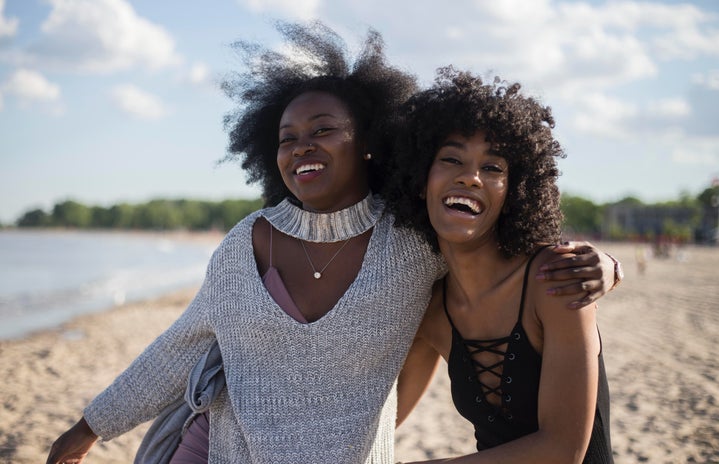When you’re a kid, you’re constantly told by your parents not to talk to strangers online. But, in an age defined by near-constant use of technology, those of us who grew up online, right as social media was beginning to take off, may have a slightly different view of the internet. My late-middle school and early high school years were defined by social media. Starting in seventh grade, I found myself constantly online, and as a result, I began to create real connections through shared interests with people who were simple icons on a screen. Some of the relationships I established were shallow, based on mere association and familiarity—but others grew into lifelong friendships.
Even almost six years after meeting one of my best friends online, she and I still talk nearly every day. One of us may not get a response to our characteristic barrage of texts, but we both know we can rely on each other at any moment. And if someone can’t have a full conversation at the moment, we know our text messages are open to venting and complaining about life, sharing our obsession and love for various movies, about anything we just need to get out to another person. In high school, I grew close to a group of eight girls, girls I still keep in my life and consider among some of my best friends, and a group which did give me my best friend. They are the definition of “girl gang” and have inspired me, supported me, and made me laugh more than my 14-year old self ever could have imagined they would. While we may not chat as consistently as we used to, we still turn to each other in the moments that matter most. We’ve had the same drama any friend group “in real life” may encounter, and we come out stronger than ever every time.
In many ways, I found that as a confused, desperate teenager, it was a lot easier to open up fully to someone online than it ever was to confess to my best friends in my immediate life. You don’t have to fear repercussion, wondering if you’ll see someone the next day at school and they’ll judge you; you don’t have to wonder if they’ll tell your mom what you consider private, or hold something over your head in the future. When you don’t have to fear face-to-face interaction, you may have the chance to become a more open, honest self. The friends I met online and those I continue to grow close to on social media know more about me than anyone else. And while I may joke about the internet being my diary, it has grown to be a safe space, and that’s partly due to the people I’ve chosen to share myself with online.
While everyone forming a connection online should still be cautious, looking for red flags and making sure you don’t end up as the next lonely soul on MTV’s “Catfish,” the stigma that has been created around the people you meet online does more harm to developing teenagers than good. No one should feel they have to lie about “meeting a friend at camp” instead of just saying they met them on Twitter, wondering if they’ll have to suffer the backlash from their parents. While that backlash makes sense (hey, you want your children to be safe!), when someone shows a real, deep, true connection to a friend they met online, it shouldn’t be dismissed. Those friendships have been proven to be just as, if not more, fulfilling than anyone I’ve ever met first in person.



